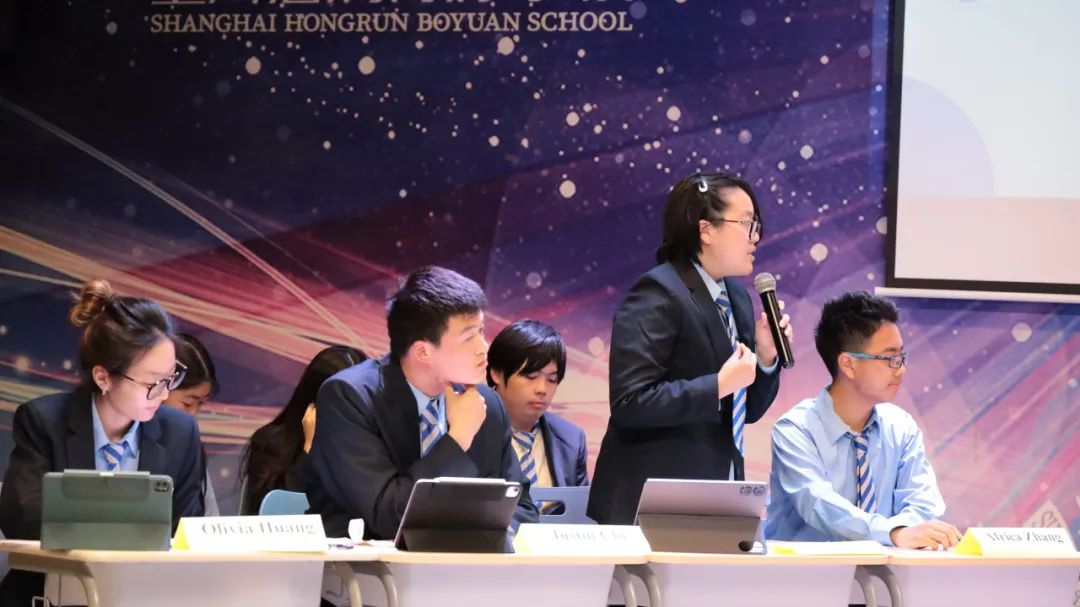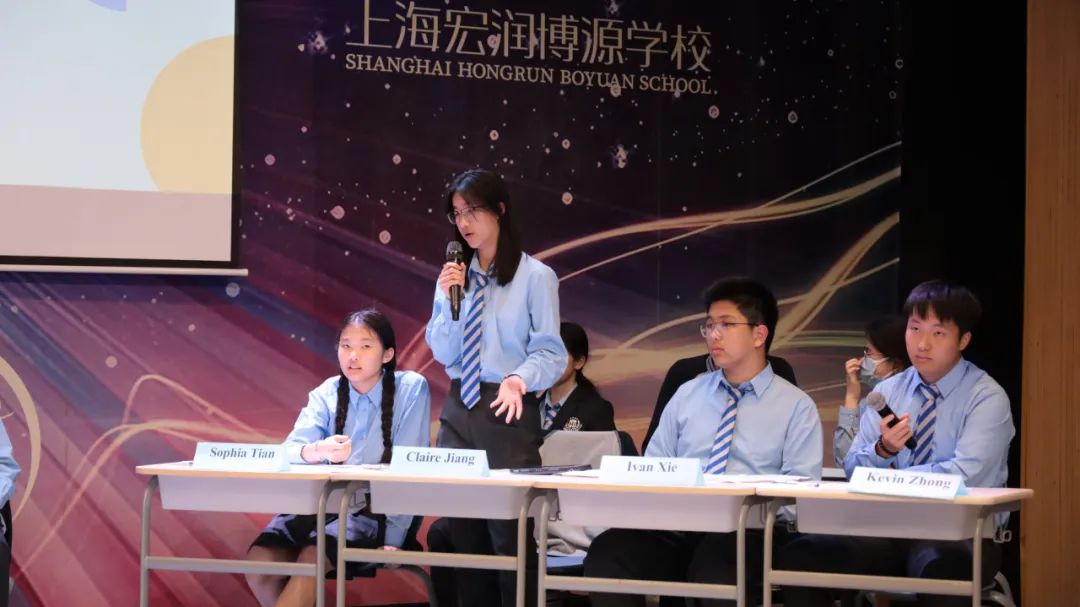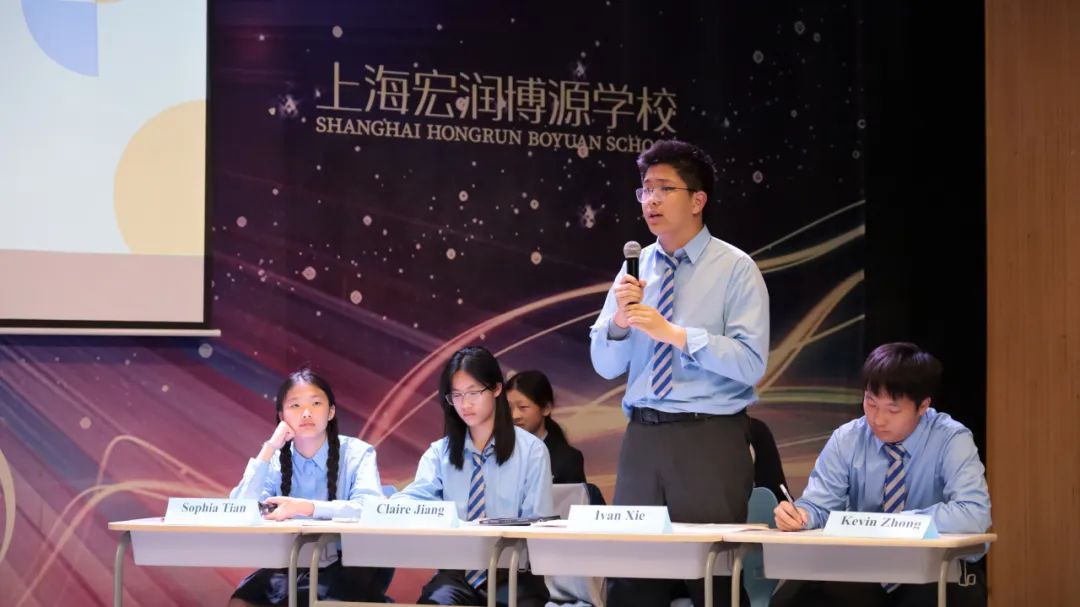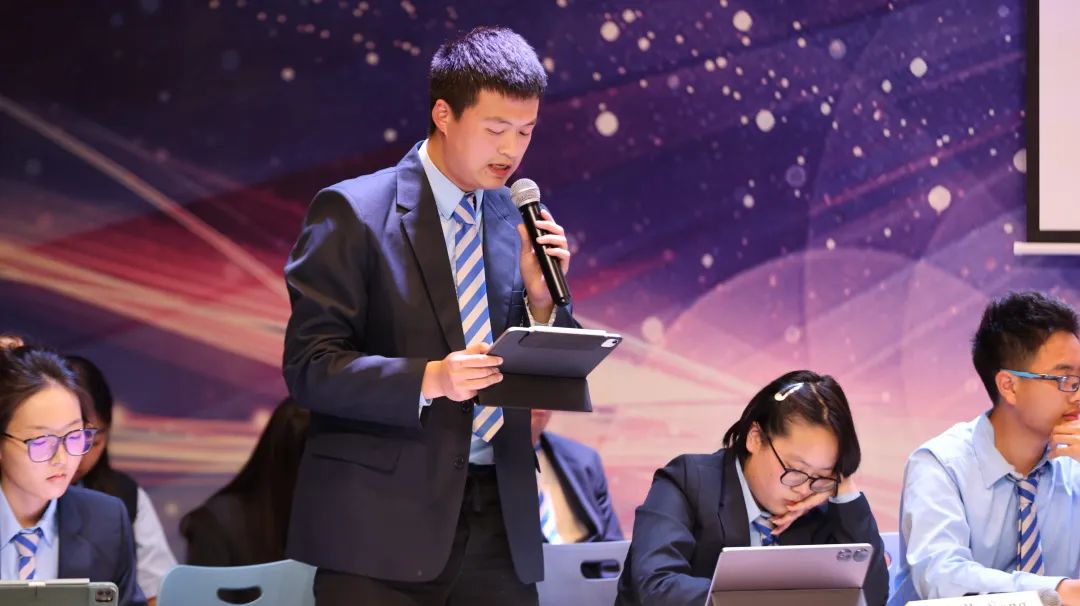-

 Hongrun Boyuan High School Rowing Academy | Shaping Youth Rowing Teams and Future Leaders2025-06-20
Hongrun Boyuan High School Rowing Academy | Shaping Youth Rowing Teams and Future Leaders2025-06-20 -

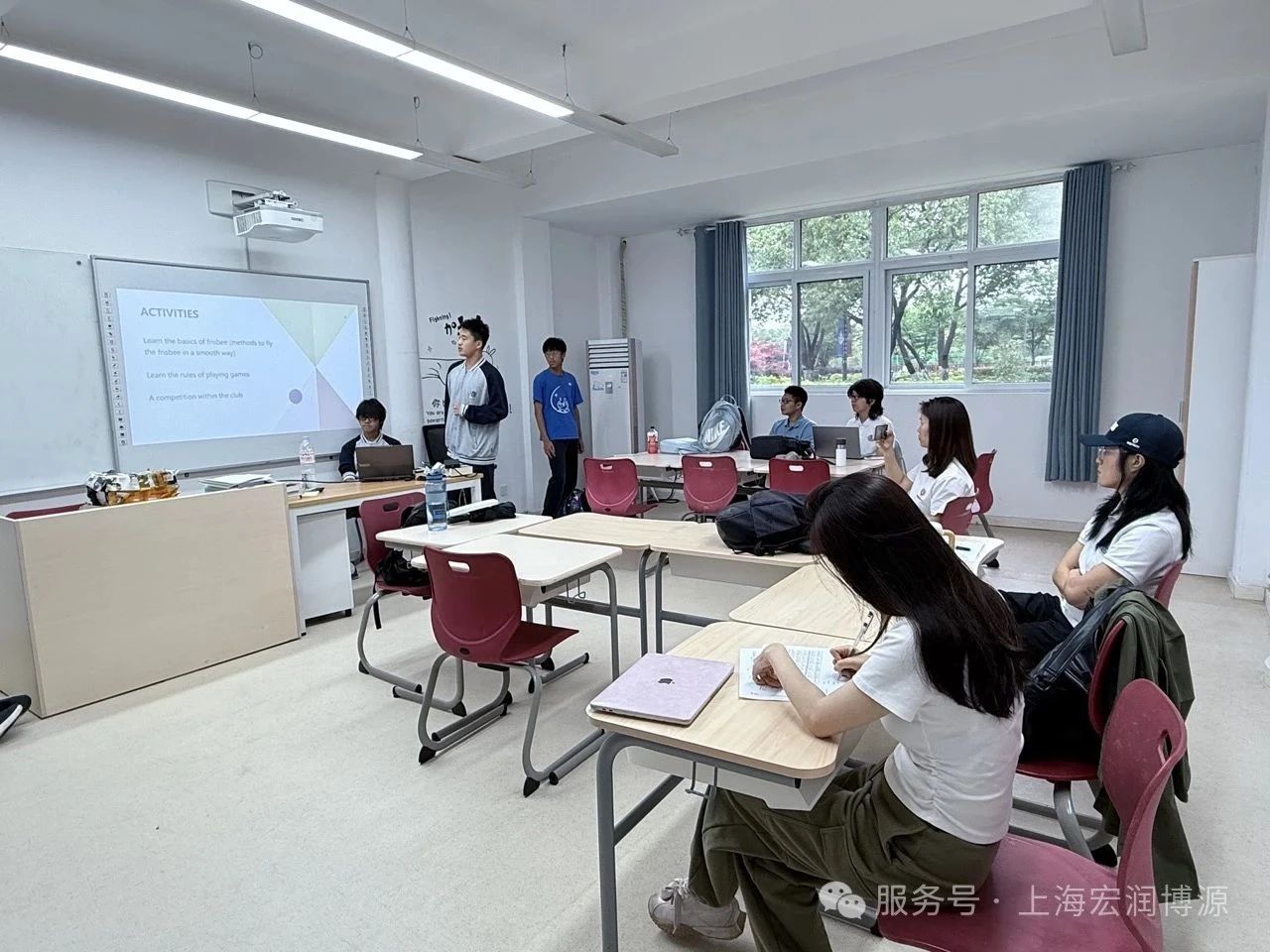 Hongrun Boyuan High School Event | A Flourishing of Talents and Vibrant Energy: 2024–2025 Second Semester Club Summary Report2025-06-18
Hongrun Boyuan High School Event | A Flourishing of Talents and Vibrant Energy: 2024–2025 Second Semester Club Summary Report2025-06-18 -

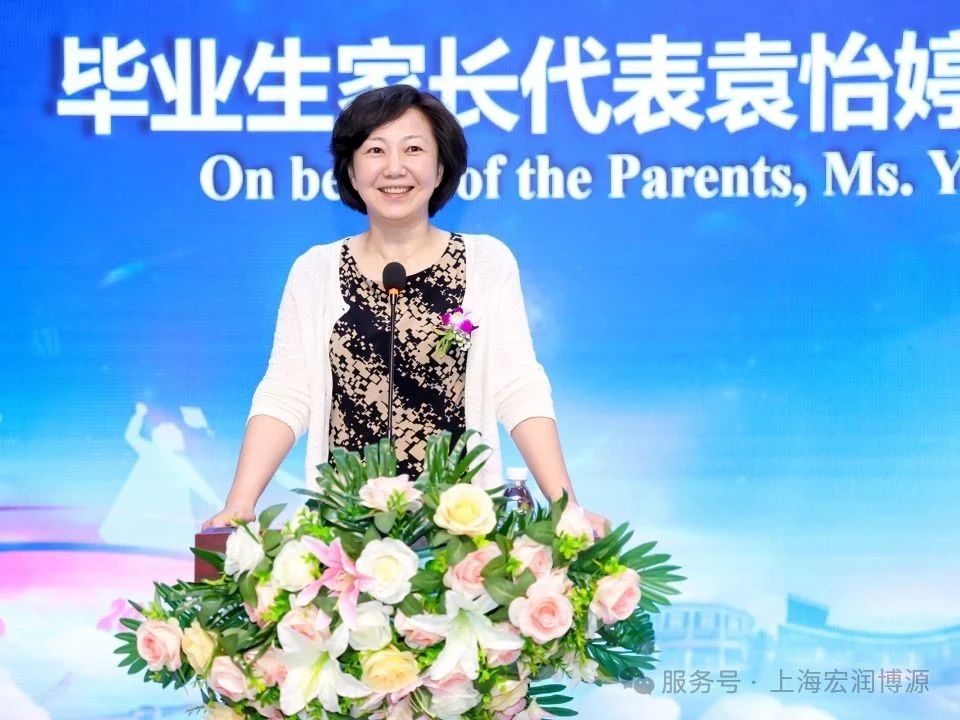 Commencement|Speech by Ms. Yuan Yiting, Parent Representative of the Graduates2025-06-06
Commencement|Speech by Ms. Yuan Yiting, Parent Representative of the Graduates2025-06-06
- 2024-04-19
- Views:1394
On the afternoon of April 29, 2024, the SHBS English Debate Competition was held in the auditorium. The topic of this debate was "Is it better to have loved and lost, or never to have loved at all?"
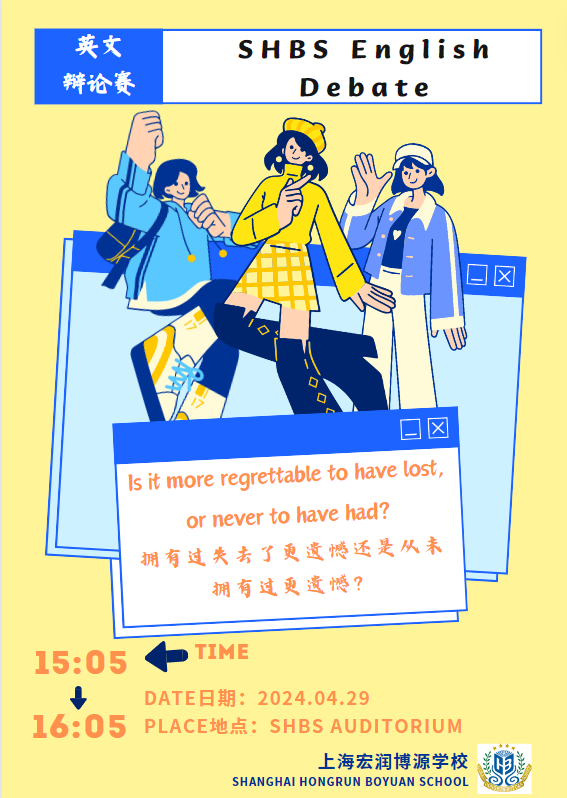
The eight well-prepared debaters had already taken their positions in a timely manner. After over a month of meticulously planned rehearsals and debates, they were able to recite their own arguments and evidence fluently, with their confidence soaring high.
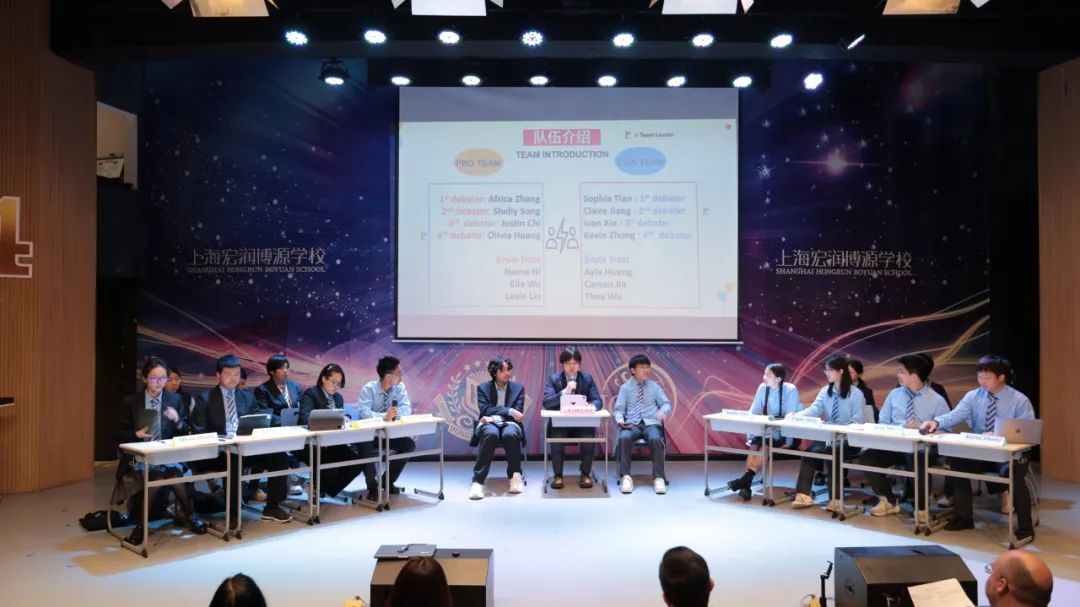
The chairperson first introduced the four debaters and three advisors from each side to the audience, providing an overview of the entire debate process. Following this, the debate officially commenced!
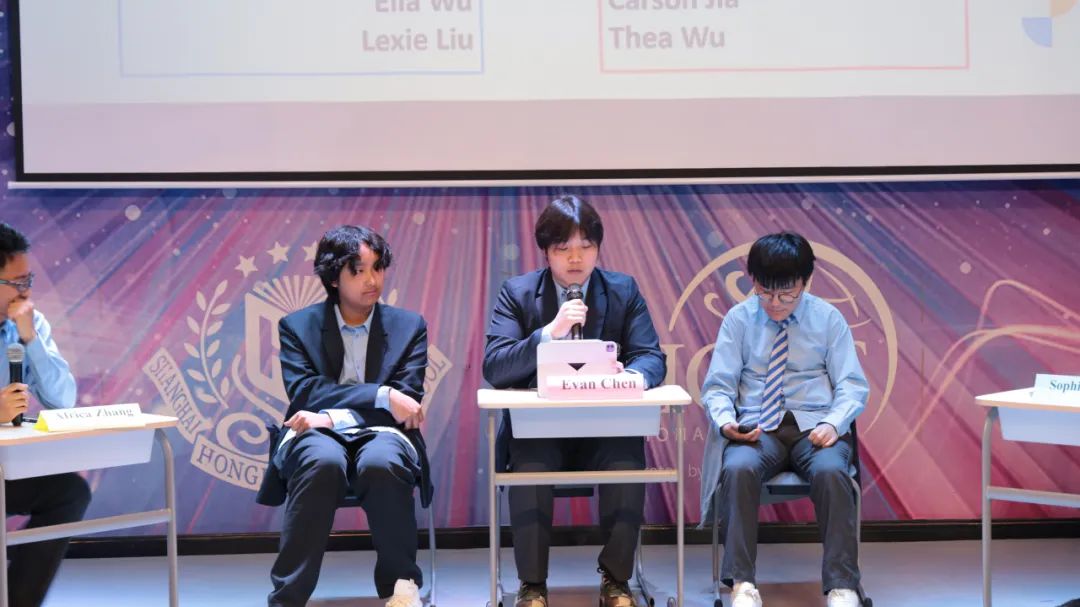
开篇立论
The first segment is the opening statements. The first debater from the affirmative side, Zhang, and the first debater from the negative side, Tian, delivered their speeches sequentially. Zhang began by asserting the heavyweight viewpoint that "the psychological gap caused by gaining and losing again is immeasurably costly." In response, Tian countered vigorously, elaborating from the perspectives of growth and emotional needs, arguing that having loved and lost is not as regrettable as never having loved at all. Both sides expressed their views passionately, with neither side appearing to have the upper hand.
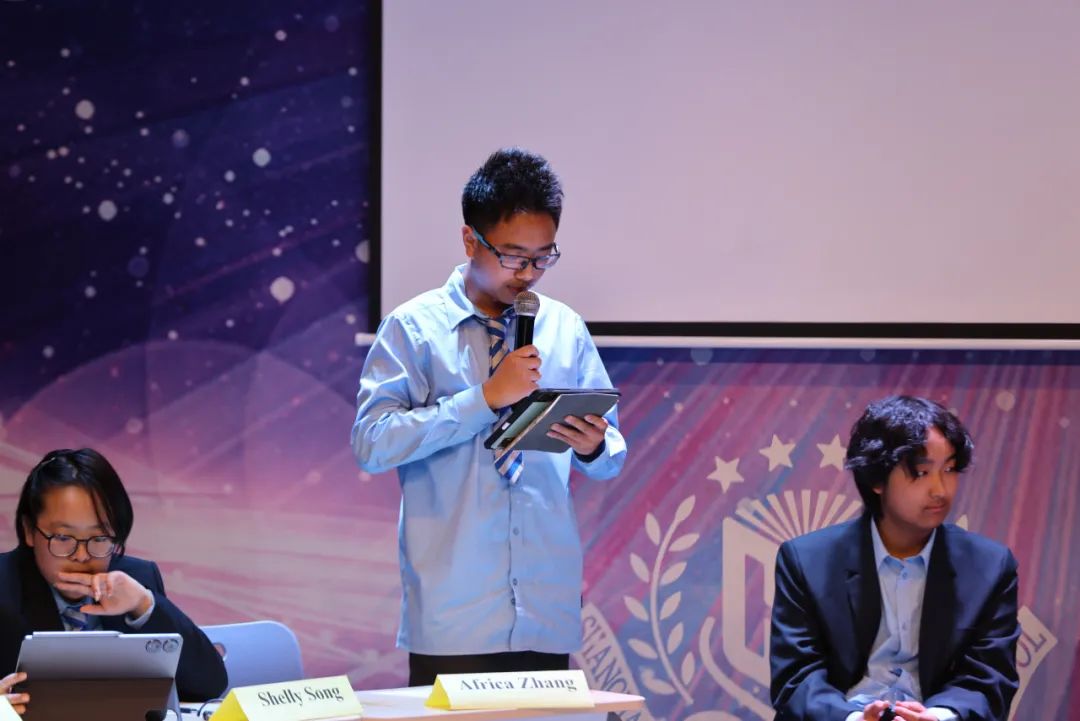
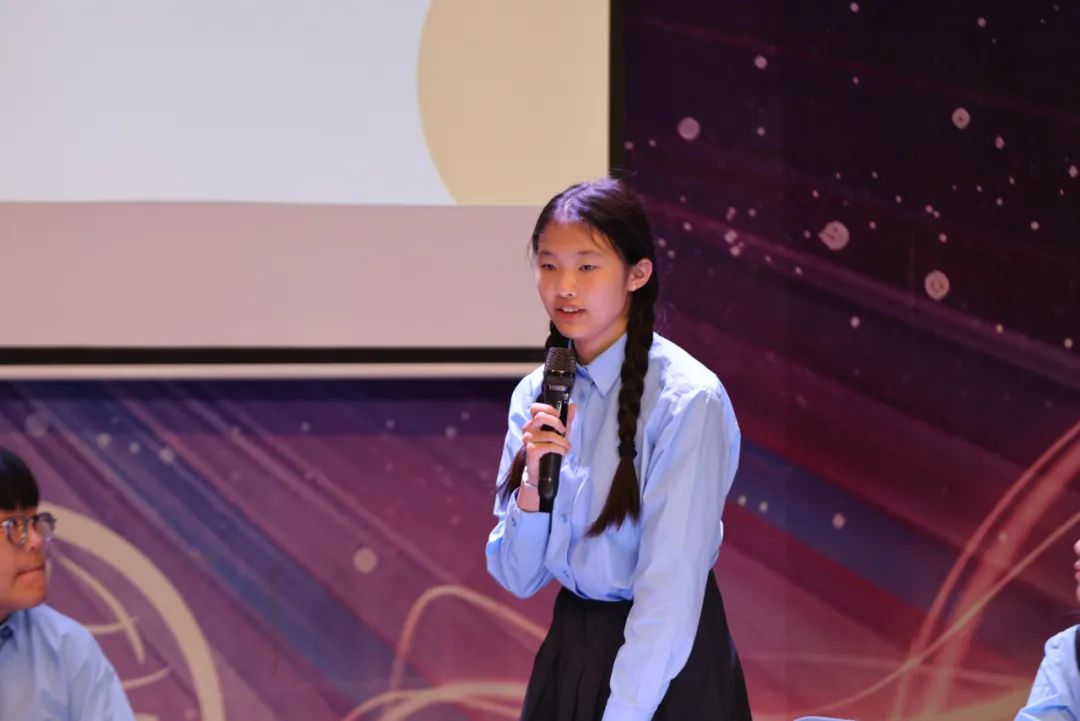
攻击与质询
In the second segment, the second affirmative debater, Song, and the third debater, Chi, engaged in attacks and cross-examination against the core arguments of the negative side, represented by the second debater, Jiang, and the third debater, Xie. The affirmative side emphasized that the debate scenario pertains to the normal reactions of ordinary individuals after losing something dear, countering the negative side's arguments with a quote from Helen Keller. On the other hand, the negative third debater brought up the stories of the movie Titanic and the historical event of Xiang Yu's self-immolation at the Wu Jiang River, broadening the definition of regret.
自由辩论
The third segment, the free debate, was the most thrilling part, pushing the debate to its climax. The eight debaters eagerly vied with each other, exchanging verbal blows with great fervor and liveliness. Various arguments clashed: on one hand, there was the notion that the psychological gap caused by loss is an incurable flaw throughout one's life, and that precious things become more valuable after they are broken; on the other hand, there was the existential question of "we will eventually be alone." The discussion delved deeper and broader, with the judges nodding frequently in approval. Students alternated between watching the affirmative side's passionate inquiries and turning to listen to the effective counterattacks from the negative side, intensifying the atmosphere on the stage.
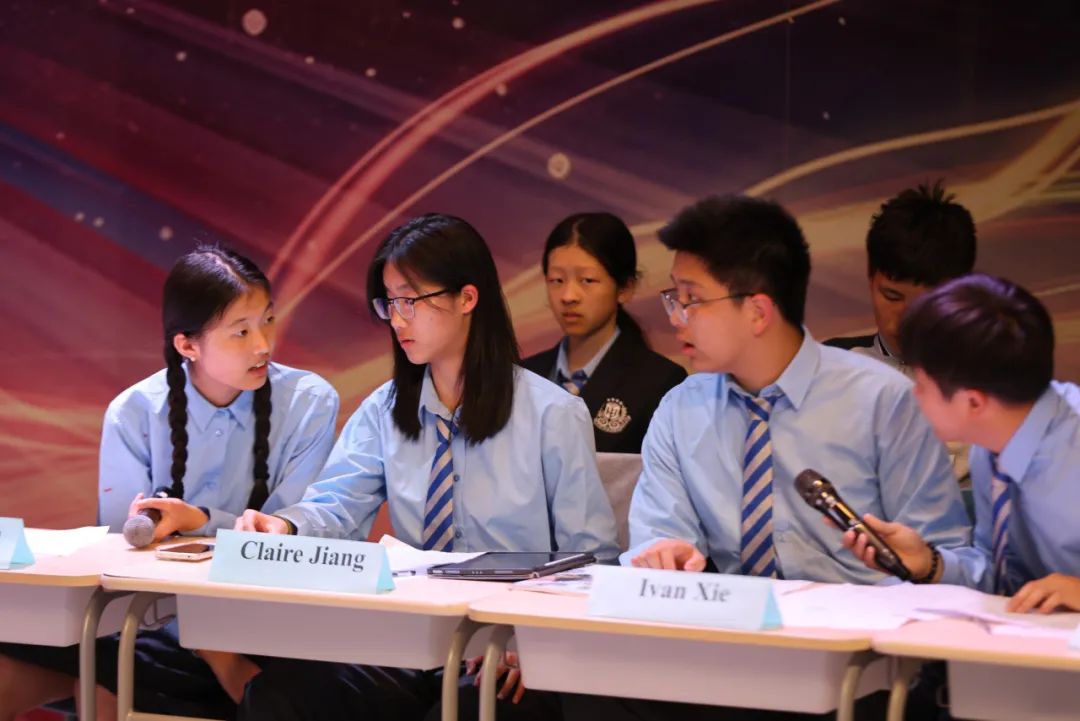
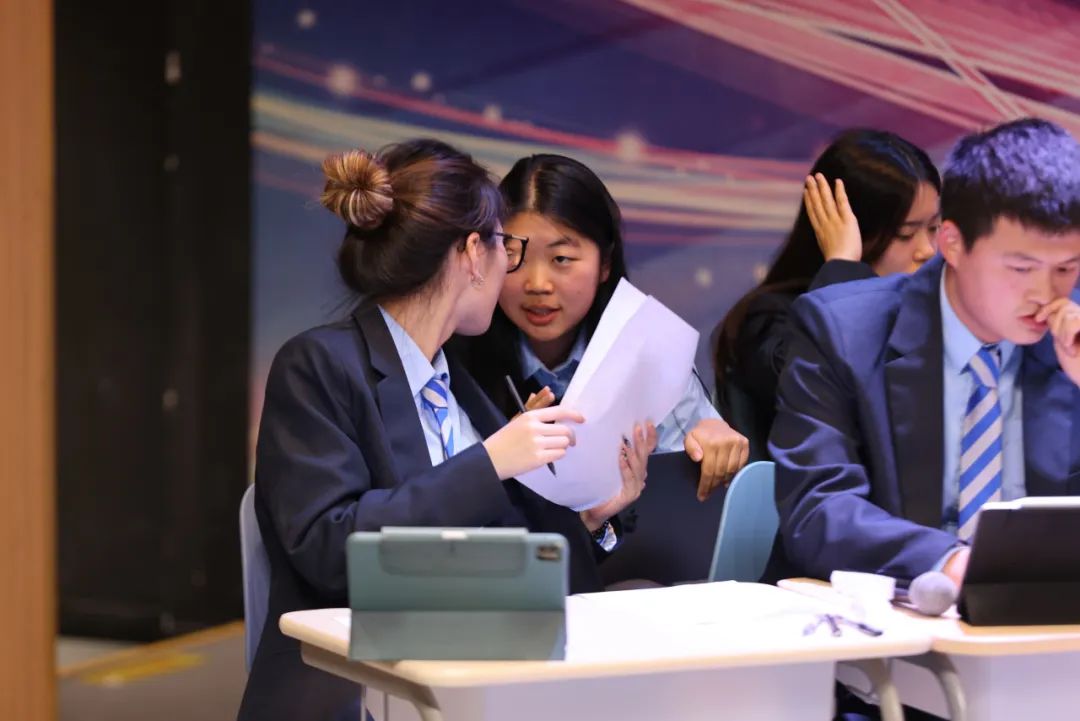
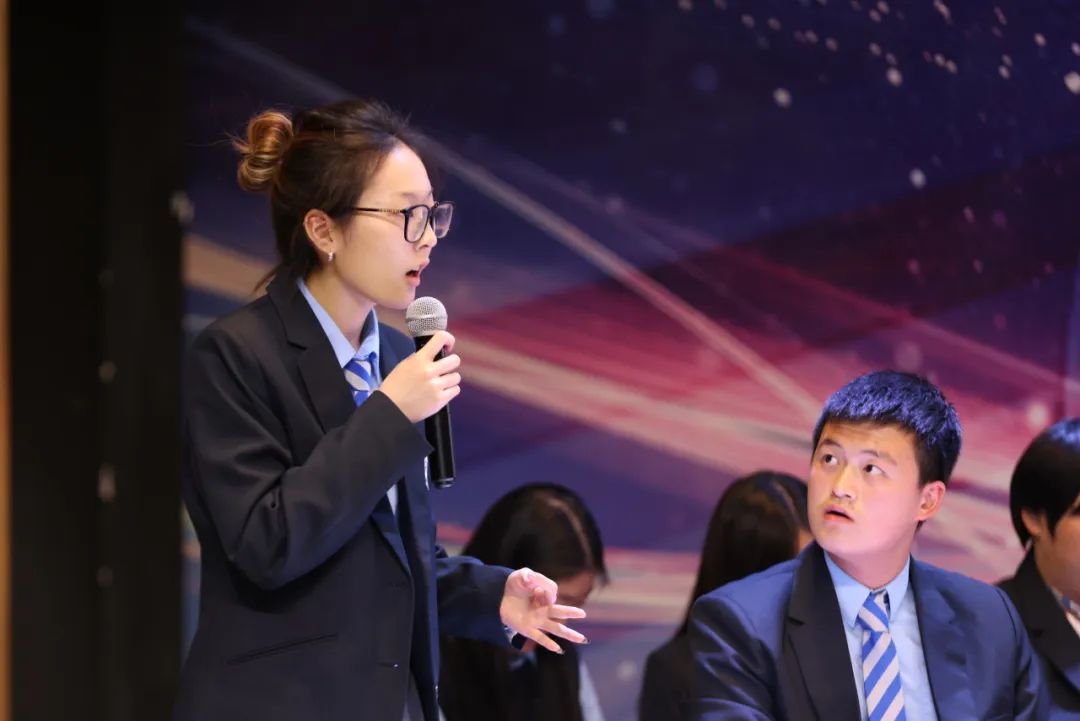

智囊团发言提问
The fourth segment was the presentation and questioning by the advisors. Both sides' advisors exerted themselves to find weaknesses in the opposing camp to deliver a decisive blow.
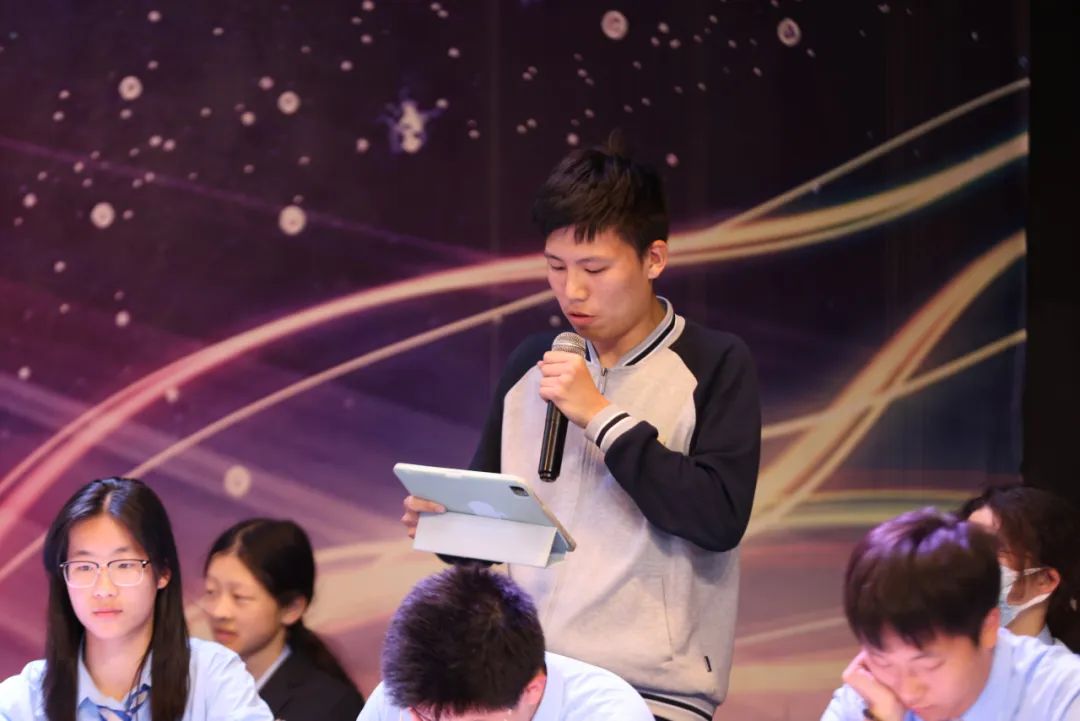
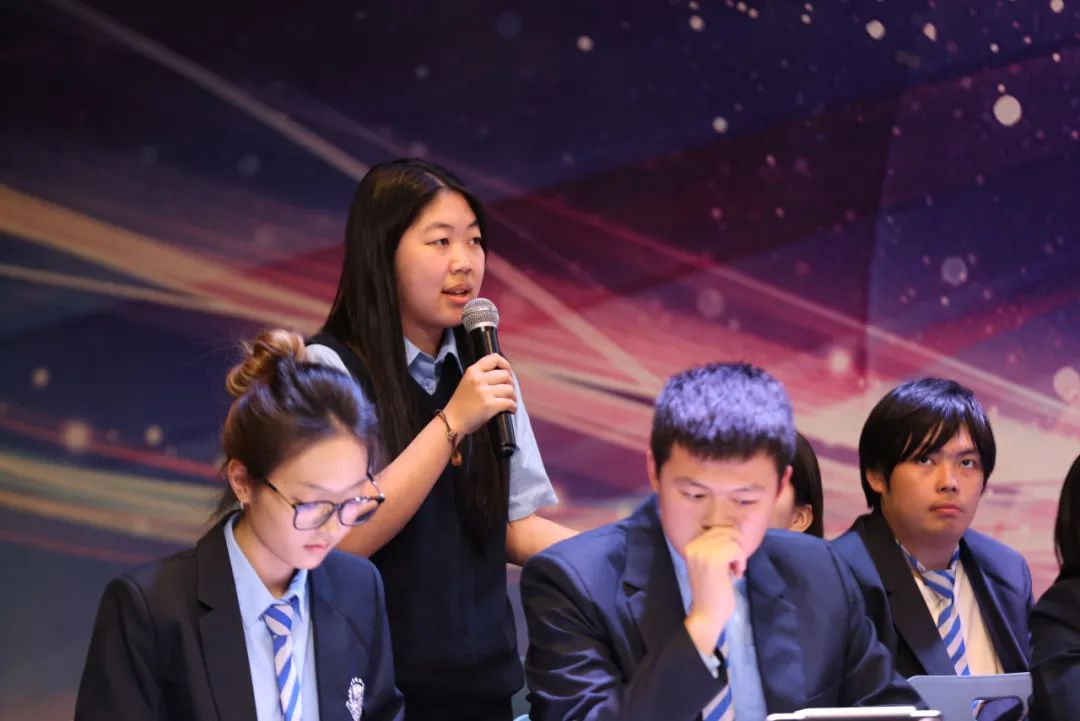
观众提问
In the fifth segment, the audience asked questions enthusiastically, with teachers and students raising their hands to ask witty and humorous questions, prompting the debaters to deliver memorable responses.
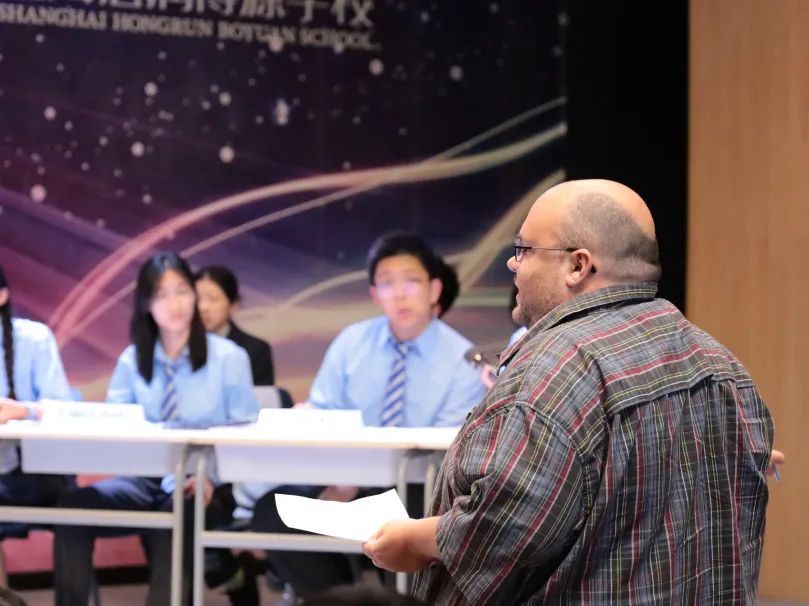
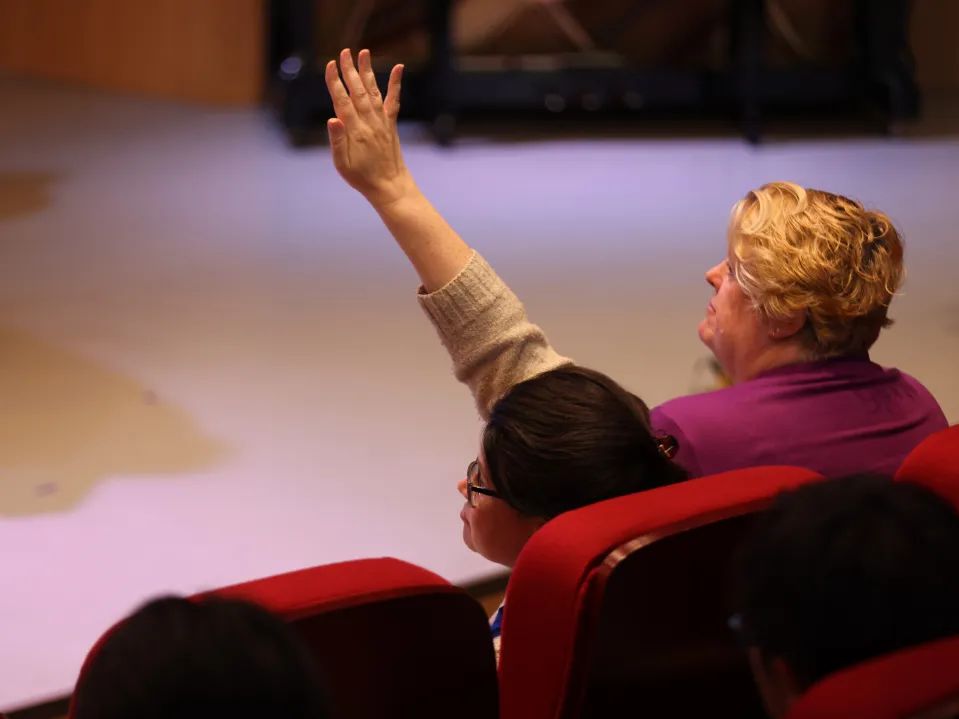
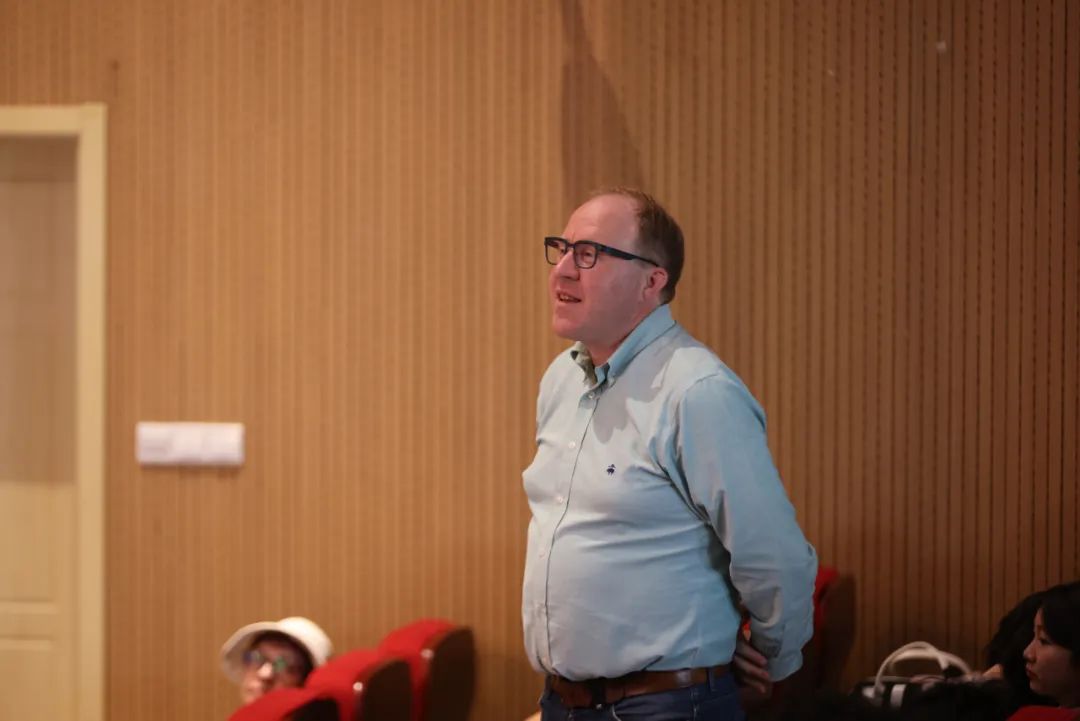
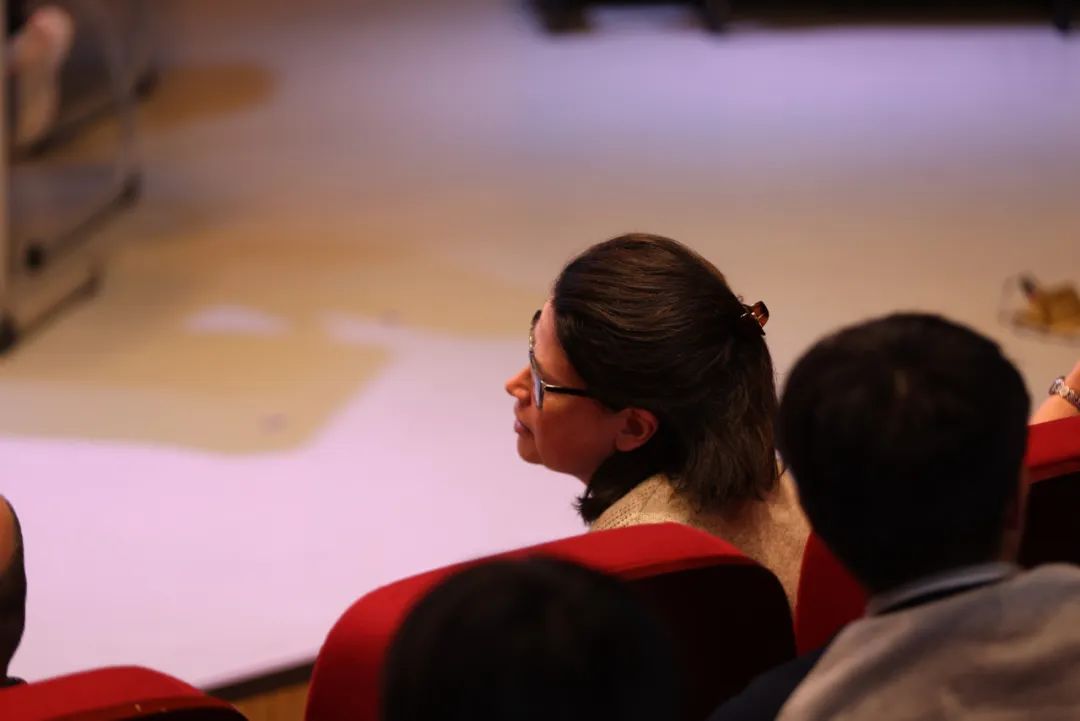
The final rebuttals were equally gripping. The fourth affirmative debater, Huang, maintained his sharpness throughout, delivering the final blow with unwavering determination. On the other hand, the fourth negative debater, Zhong, calmly responded to the affirmative side's pressure, articulating the most perfect logic within the limited time, leaving the audience with profound reflections.
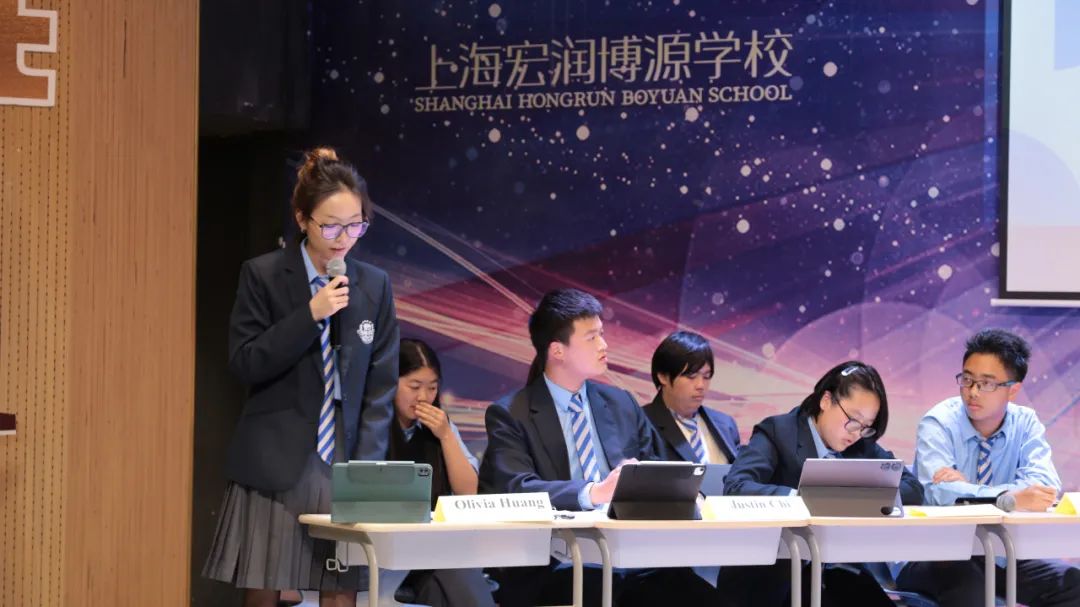
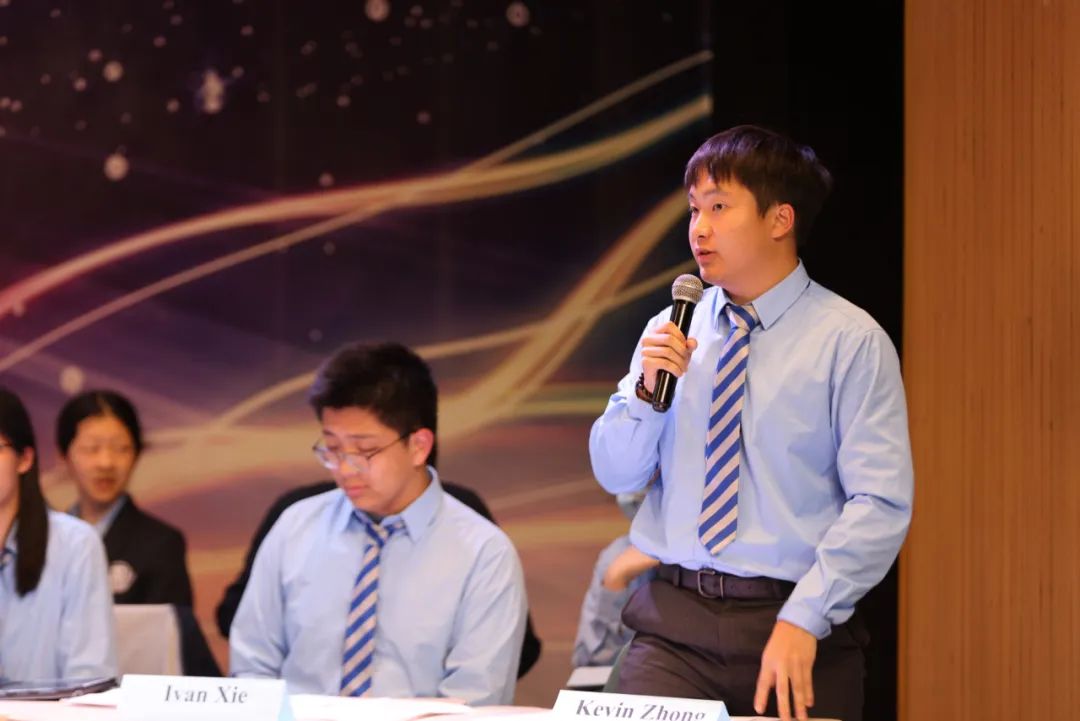
In the end, after voting and calculations, the affirmative side emerged victorious in the debate. The outcome of the competition was not as significant as the realization, through watching this exciting debate, of the charm of debating, prompting students to contemplate and reflect amidst the verbal battles.
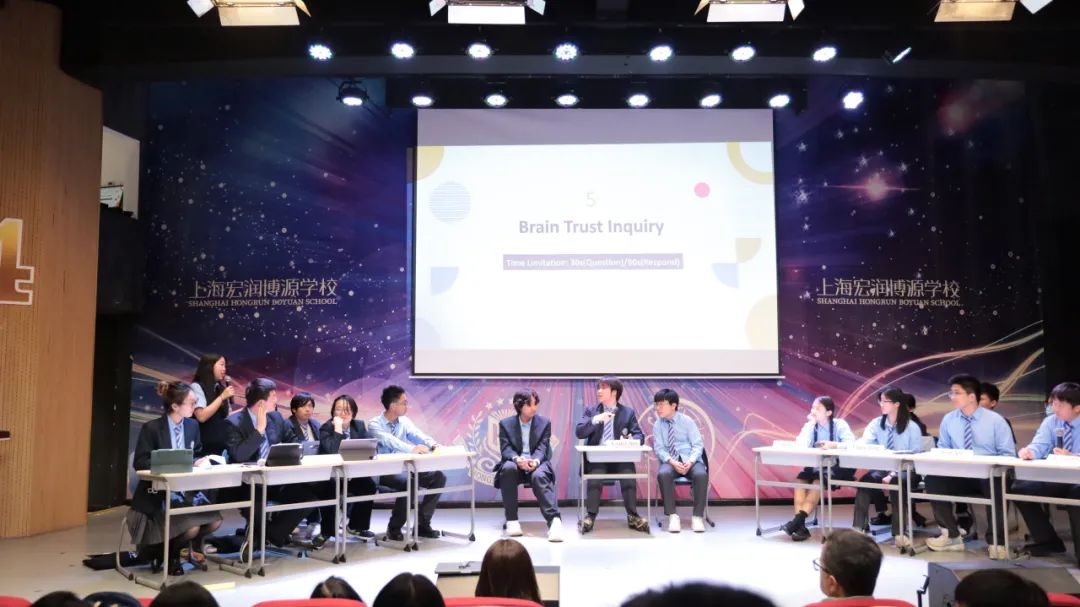
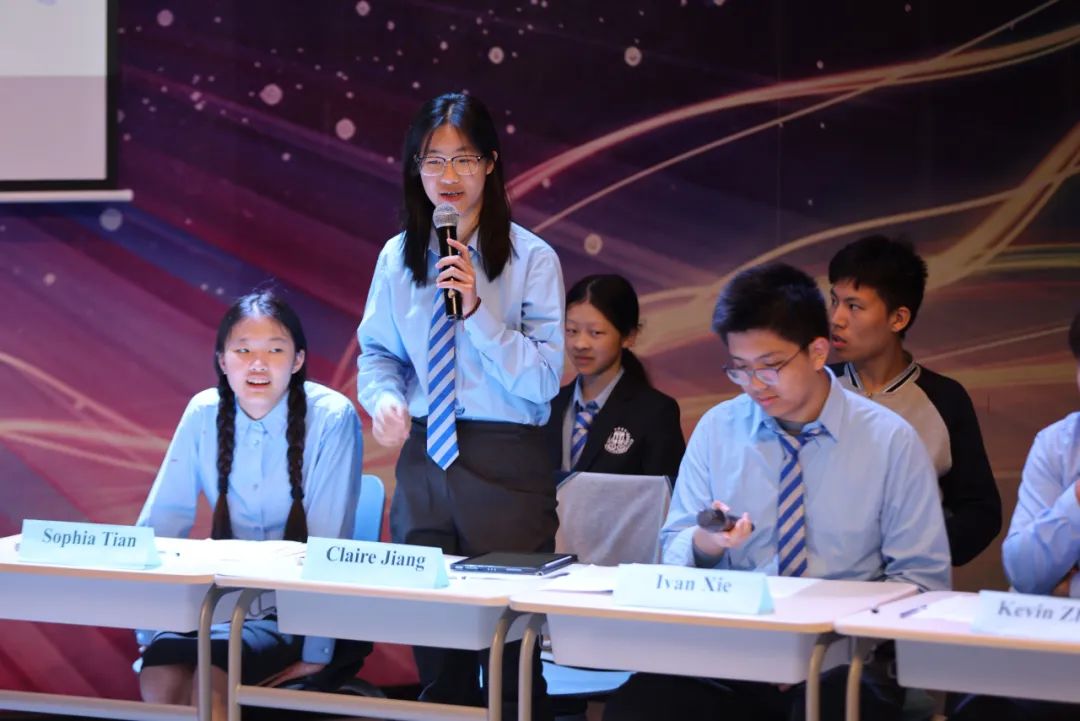
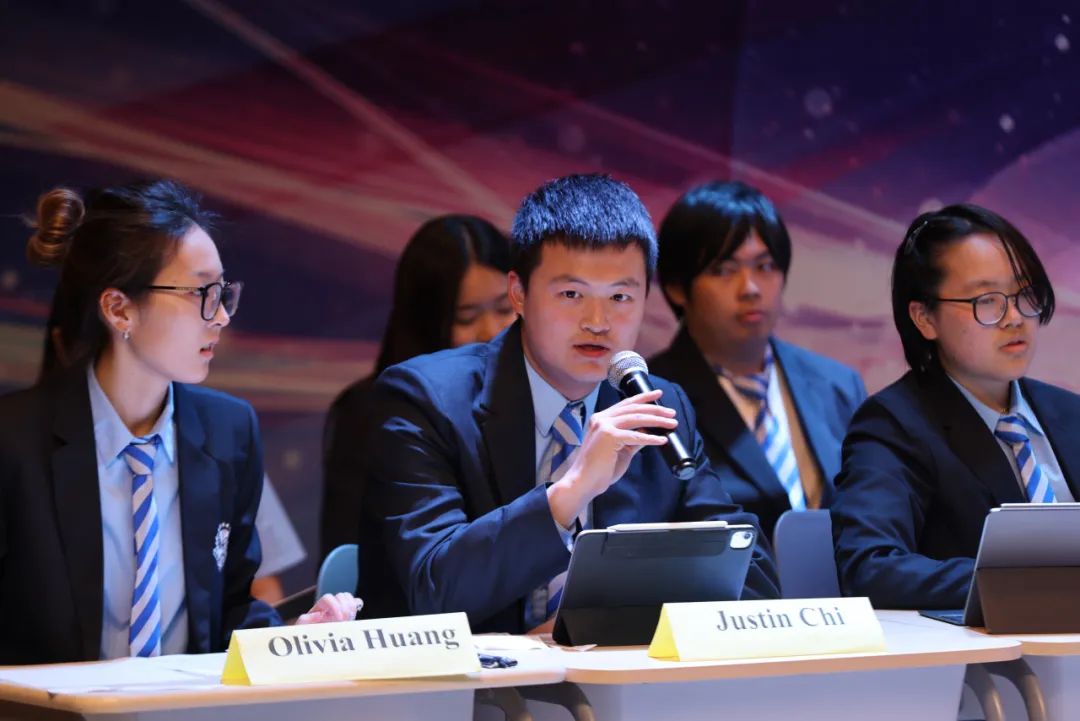
文 | Ivan Xie (G9)
审核/翻译 | Wu Xu
排版 | Jang
配图 | Photography Club








